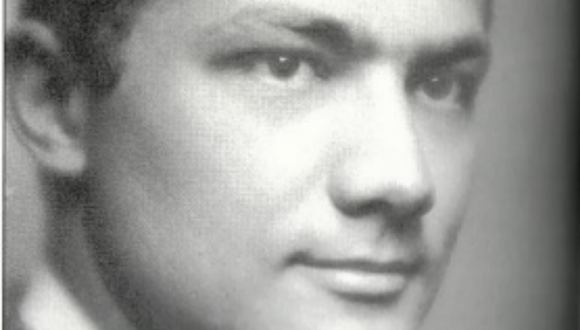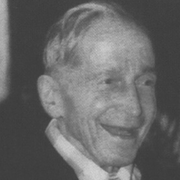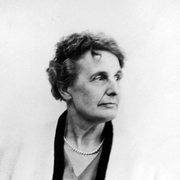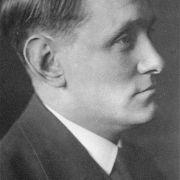Righteous Among the Nations - Varian Fry
“I didn’t know them personally, but I felt a deep love for these people and a gratitude for the many hours of happiness their books and pictures and music had given me. Now they were in danger. It was my duty to help them, just as they - without knowing it - had helped me in the past”.
Varian Fry
Varian M. Fry was a representative of the American Rescue Organization in France between the years 1940-1941.[1] Fry was born in New York City in 1908. As an adult he was a scholar of ancient Greek and Roman history at Harvard University.[2] After graduating from Harvard University, Fry worked as a journalist, and in one of the assignments he was sent to Berlin to write an article. That article was published in The New York Times in 1935, where he exposed he’s thoughts about the Nazi regime and the horrible policies and Anti-Semitic laws that were inflicted on the Jewish people.[3]

Isenberg. (2001). A hero of our own : the story of Varian Fry (First edition.). Random House.
In the Forward to his book, Fry writes:
“In 1935 I visited Germany and tasted the atmosphere of oppression which the Hitler regime had brought. I talked to many anti-Nazis and Jews, sheared their anxiety and their sense of helplessness, felt with them the tragic hopelessness of their situation. And while I was in Berlin, I witnessed on the Kurfuerstendamm, the first great pogrom against the Jews, saw with my own eyes young Nazi toughs gather and smash up Jewish-owned cafes, watched with horror as they dragged Jewish patrons from their seats, drove hysterical, crying women down the street, knocked over an elderly man and kicked him in the face. Now that the same oppression had spread to France, I could not remain idle as long as I had any chance at all of saving even a few of its intended victims”.[4] This memory will change Fry’s life forever.
After Germany invaded France in 1940, the country was divided between the German and Vichy Government territories. As Germany ruled in the northern and western territories, the Vichy government controlled the rest while cooperating with the Nazi regime.[5] Thousands of French, Germans, and other European refugees (Jews and non-Jews) hoped to escape through the port city of Marseilles. However, the Vichy government closed its borders, and trapped all the refugees inside. They lived in constant fear because of the ‘Surrender in demand’ clause between France and Germany, which allowed the Germans to claim anyone who opposed the Nazi regime.[6]
In response to this event, a group of individuals based in New York established the Emergency Rescue Society Organization. Although Elanor Roosevelt was one of the organization's sponsors, it was not connected to the US government. The organization’s main goal was to send a representative to Marseilles on their behalf, which would help important key figures escape France. As a response to the horrifying actions of the Nazis, Fry felt that he had to take action and volunteered for the job.[7]

Friedlander, Friedlander, Henry, & Milton, Sybil. (1989). Archives of the Holocaust : an international collection of selected documents. Garland Pub. Volume 5- p. 62
Fry arrived in Marseilles in June 1940 and soon realized that the Vichy government won’t assist him because they feared the Nazi regime.[8] Fry sneaked food for the refugees and searched for homes where they could hide until he could smuggle them across the border. Fry worked long hours with his staff to create false identity papers and find safe routes for them to escape through the mountains to Spain and Portugal. On that time, Fry had his own battle to fight. He was struggling with mental illness, which didn’t prevent him to keep fighting for the refugees.[9]
Fry’s actions created a tension between France and the United States, as his actions provoked the France authorities’ suspicion. He was detained and interrogated by the Franch police several times. In September 1941, his department in France decided to send him back to the US.[10] When he came to Marseilles, Fry was supposed to stay for only one month, eventually he stayed for thirteen months. In his book, he stated that when he finally came back to the US, against his will, the work was still far from finished.[11]
After returning to the US, Fry wrote his book Surrender on Demand where he describes his thirteen months in Marseilles.[12] The title’s origin lies in the ‘Surrender in demand’ clause between Germany and France in 1940. Many of the people he saved were Jewish, among them was the philosopher Hannah Arendt, the painter Marc Chagall, the author Franz Werfel and many more.[13]

Fry. (1945). Surrender on demand. Random House.
In July 1994, Varian Fry was recognized by the “Yad Vashem” institute as a Righteous Among the Nations.[14]
[1] Darryl Lyman, Holocaust Rescuers: Ten Stories of Courage (Enslow, 1999) p.25.
[2] Ibid, p. 25.
[3] Raymond, Jennings. Holocaust Saviours: True Stories of Rescuers That Save Holocaust Refugees. 2nd edition (Place of publication not identified: Publisher not identified, 2015) p.25.
[4] Varian Fry, Surrender on Demand (New York: Random House, 1945) p. 11.
[5] Bartrop et al. The Holocaust: An Encyclopedia and Document Collection (Santa Barbara, California: ABC-CLIO, an imprint of ABC-CLIO, LLC, 2017) p. 276.
[6] Holocaust Rescuers: Ten Stories of Courage, p. 26.
[7] Ibid, pp. 26-27.
[8] Ibid, p. 28.
[9] Holocaust Saviours: True Stories of Rescuers That Save Holocaust Refugees, p.29.
[10] Ibid, p. 30.
[11] Surrender on Demand, p. 12.
[12] Holocaust Rescuers: Ten Stories of Courage, p. 35.
[13] Ibid, pp. 33-34.





